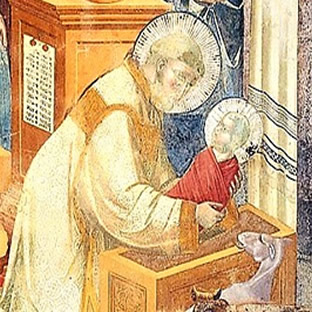This year we are celebrating the eighth centenary of the living nativity scene that Francis of Assisi held at Greccio (Italy), in 1223[1]. It is generally considered that this event gave rise to “the enchanting image of the Christmas crèche”[2] and to the “intense spiritual atmosphere that surrounds Christmas”[3]. Sadly, today we have turned Christmas into an excuse for consumerism. Between lights, shopping, and gifts we are losing the ability to contemplate the humility and poverty of the Child Jesus, who calls us to follow in his footsteps by faithfully observing the Gospel. Pope Francis invites us to “encourage” in our society the enchanting tradition “of the Christmas crèche”. He recognizes that it originated in the living nativity scene of Saint Francis in Greccio. This papal recognition does not negate the obvious similarities of that celebration with the medieval tradition of staging the Christmas mysteries. Saint Francis’ crèche was not the first staging of the nativity but its connection to the Eucharist, the way people present felt involved, and the charism of the Saint of Assisi may explain why the popular belief has considered Saint Francis as the initiator and propagator of the nativity scenes. Benedict XVI confirms that “the…
The growing ecological awareness invites us to broaden the horizons of the four principles of Catholic Social Teaching (CST): human dignity, solidarity, subsidiarity, and the common good[1]. The first principle affirms that the human being is an image of God (“imago Dei”) and has a very special dignity which, however, does not imply separation, but rather collaboration and service. Being capable for God (“capax Dei”) and, at the same time, brother of all creatures, the human being must serve them in the logic of gift, thus imitating the kenosis of Christ. Therefore, the awareness of his human dignity must not separate him from the rest of creation, but rather reinforce his responsibility towards all creatures. We are all brothers and sisters of the same heavenly God and part of a single project of love. On the other hand, the respect for creation does not mean that it is static and untouchable, as some neo-pagan or pantheistic movements claim, sacralizing it as “an untouchable taboo” (CV 48). In the name of an idea inspired by egocentrism and biocentrism it is being proposed that the ontological and axiological difference between men and other living beings be eliminated, since the biosphere is considered…


